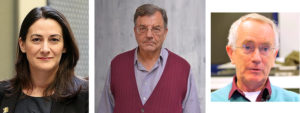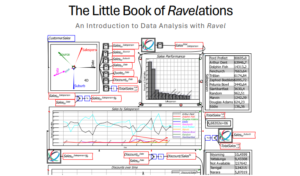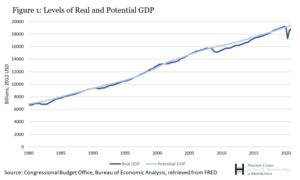Since Warren Mosler accidently created this MMT thing, what is considered to be a new school of economic thought (or perhaps it’s a subset of the post Keysenians school – I’m not sure), it has come to the attention of what I’ll call “real” economists, and political economists, and others, by which I mean people with PhDs who teach economics and/or political economics and/or public policy at Universities.
The list of people I identify in this series is by no means all inclusive. I’m stumbling across more economists who accept the implications of having a sovereign currency and floating exchange rates every month. As such, this list should grow over time.
Pavlina Tcherneva
Pavlina Tcherneva is an American Economist working as an associate professor and director of the Economics program at Bard College. She is also a research associate at the Levy Economics Institute and an expert at the Institute of New Economic Thinking.
Her research focuses on on employment and job creation.
She is pushing the interesting idea of a Job Guarantee.
She uses the analogy of the US maintaining strategic reserves of stuff (oil, grain, etc) which seems like a good idea to everyone. What the US does NOT do is maintain a strategic reserve of skills, of labor.
Per her research, the job guarantee will do the following:
- Mitigate the effects of economic booms and busts by providing income to people who would otherwise be unemployed. This maintains a higher level of consumer spending than would occur during mass layoffs.
- Keep people employed so that when the economy turns up again, their skills have not become rusty.
She is the author of numerous papers on this topic, and a book titled Full Employment and Price Stability: The Macroeconomic Vision of William S. Vickrey.
Her twitter handle is @ptcherneva.
Michael Hudson
Michael Hudson is an American economist, was Professor of Economics at the University of Missouri-Kansas City, and a researcher at the Levy Economics Institute at Bard College. He’s a former Wall Street analyst, political consultant, commentator and journalist.
He is also a contributor to The Hudson Report, a weekly economic and financial podcast produced by Left Out.
Some consider him to be the best contemporary economist.
I have personally learned some really interesting stuff from Michael Hudson.
He wrote a book titled “J is for Junk Economics – A Guide to Reality in an Age of Deception“, in which he claims the phrase “free market” was redefined around WW1 to mean almost the polar opposite of what it used to mean when Admin Smith wrote “The Wealth of Nations“.
He also wrote a book titled “… and forgive them their debts – Lending, Foreclosure and Redemption from Bronze Age Finance to the Jubilee Year“, in which he proposes that if you consider Jesus Christ to be an economic activist seeking debt forgiveness from the creditor class, the narrative of the New Testament stays intact.
He doesn’t seem to have a twitter handle.
Steve Keen
Steve Keen is an Australian economist who recently retired from the position of the Head of Economics at the Kingston University in London. Before that he was an associate professor of economics at the University of Western Sydney.
He is purported to be the first crowd-funded economist through his channel at Patreon. He also has a YouTube channel with more videos than I can easily count, which he started in 2011.
He is a very entertaining economist who is a constant critic of neoclassical economics as empirically unsupported, inconsistent, and unscientific.
He also seems to be a total math nerd, which for an economist is probably a good thing.
He is the author of “Debunking Economics: The Naked Emperor Dethroned?” and “eCONconmics: Taking the CON Out of Economics“.
His twitter handle is @ProfSteveKeen.



